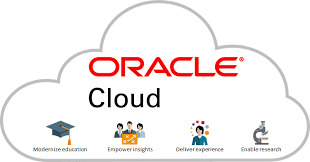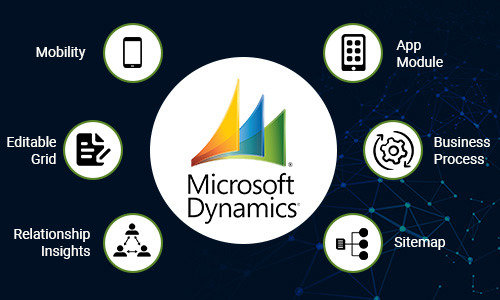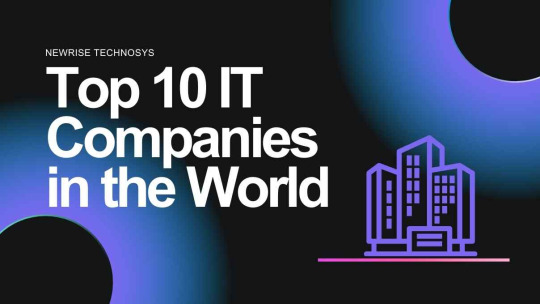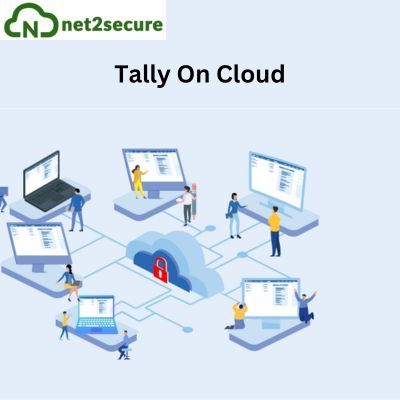#sap commerce services
Text
SAP CX Commerce Cloud | CX Implementation
Title: SAP CX Commerce Cloud: Elevating Customer Experience with Seamless Implementations
Introduction:
In today's competitive digital landscape, delivering exceptional customer experiences has become a critical differentiator for businesses. SAP Customer Experience (CX) solutions, specifically SAP CX Commerce Cloud and SAP Hybris Commerce, are at the forefront of empowering companies to achieve unparalleled customer engagement and loyalty. Let's explore how these solutions enable seamless CX implementations and the comprehensive CX services that drive success.
SAP CX Commerce Cloud: Enhancing E-Commerce Experiences
SAP CX Commerce Cloud is a powerful cloud-based platform designed to transform e-commerce experiences. It provides businesses with a flexible and scalable solution to deliver personalized and consistent shopping experiences across various touchpoints. Leveraging cutting-edge technologies, it enables seamless integration, real-time data insights, and exceptional customer journeys.
CX Implementation: A Roadmap to Success
A successful CX implementation is pivotal for businesses aiming to provide outstanding customer experiences. SAP Hybris Commerce, now known as SAP CX Commerce, offers robust capabilities to help companies seamlessly implement and customize their e-commerce solutions. Through meticulous planning, streamlined execution, and effective change management, businesses can optimize their CX strategies and stay ahead of the competition.
SAP Hybris Commerce: Powering Omnichannel Experiences
Formerly known as SAP Hybris Commerce, SAP CX Commerce Cloud empowers businesses with a unified platform to deliver consistent and personalized customer experiences across various channels, including web, mobile, and social. The platform seamlessly integrates with back-end systems, enabling businesses to efficiently manage their online storefronts and optimize inventory management.
SAP Customer Experience Hybris: Elevating Customer Engagement
SAP Hybris Commerce, now part of the SAP Customer Experience suite, is a leading e-commerce solution that allows businesses to elevate customer engagement. By leveraging customer insights, intelligent marketing tools, and robust analytics, businesses can understand customer preferences better, enabling them to deliver tailored offers and personalized experiences.
CX Services: Comprehensive Support for CX Excellence
Techwave's SAP CX Services offer businesses comprehensive support to ensure the successful deployment, integration, and ongoing management of SAP CX Commerce Cloud and SAP Customer Experience solutions. From implementation and customization to post-implementation support and optimization, Techwave's team of experts assists businesses in harnessing the full potential of their CX solutions.
SAP Customer Experience: Unifying Customer Touchpoints
SAP Customer Experience encompasses an array of solutions, including SAP CX Commerce Cloud, SAP Marketing Cloud, SAP Sales Cloud, SAP Service Cloud, and SAP Customer Data Cloud. This integrated suite empowers businesses to deliver consistent, contextual, and meaningful interactions across the entire customer journey.
SAP Hybris Commerce Cloud: A Future-Ready Solution
SAP Hybris Commerce Cloud, now SAP CX Commerce Cloud, is a future-ready platform that ensures businesses can quickly adapt to changing customer needs and market demands. With continuous innovation and upgrades, businesses can stay at the forefront of e-commerce excellence.
Conclusion:
Embracing SAP CX Commerce Cloud and SAP Hybris Commerce is not just about keeping up with the trends; it's about revolutionizing how businesses connect with their customers. These solutions, combined with expert CX services, enable businesses to deliver unforgettable customer experiences, drive loyalty, and secure a competitive advantage in the digital era. Partner with Techwave for a seamless CX implementation and unlock the true potential of your e-commerce strategy.
#sap cx commerce cloud#cx implementation#sap hybris commerce#sap customer experience hybris#cx services#sap customer experience#sap hybris commerce cloud#sap commerce services
2 notes
·
View notes
Text

SAP PP Master Data - Work Center - Part 2 - SAP Production Planning SAP Tutorial For Free SAP ERP Online Training SAP Hana
SAP Tutorial For Beginners Complete Free Full Courses.
SAP Production Planning Course Playlists
SAP PP - Introduction
SAP PP - Common Tables
SAP PP - Organization Structure
SAP PP - Integration with Other Modules
SAP PP - Master Data - Material Master
SAP PP - Bill of Materials
SAP PP - Work Center - Part 2
SAP PP - Routing
SAP PP - Demand Management
SAP PP - Creating PIR
SAP PP - Material Requirement Planning
SAP PP - MRP List
SAP PP - Long Term Planning
SAP PP - Production Orders
SAP PP - Production Order Change
SAP PP - Production Order Confirmation
SAP PP - Canceling Production Order
SAP PP - Capacity Planning
SAP PP - Capacity Leveling
SAP PP - Goods Receipt
SAP PP - Stock Overview
SAP PP - Goods Issue
SAP PP - Goods Issue Reversal
SAP PP - Lean Manufacturing
ABOUT SAP ERP Inventory Management SAP (Systems, Applications, and Products) is the world’s leading provider of business management software that specializes in industry-specific Enterprise Resource Planning (ERP) solutions
Over 50 Million Users, 60,000 Installations, 3000 Partners, 135 Industry Solutions. Customers Worldwide, mostly Fortune 500 Companies and Oil and Gas Companies. SAP is the fourth largest ERP Software Company in the World. The SAP R/3 System is a Business Management Software Package Designed to Integrate all areas of a Business.
Follow Our Social Media YouTube: https://www.youtube.com/@UCYIp5iBfHvSVKOZm9dTVsrA Facebook: https://www.facebook.com/saptutorialforfree Linkedin: https://www.linkedin.com/company/saptutorial Twitter: https://twitter.com/sap_tutorial Pinterest: https://www.pinterest.com/saptutorialforfree Tumblr: https://saptutorialforfree.tumblr.com Blogspot: https://saptutorialforfree.blogspot.com/ Wix blog: https://saptutorialforfree.wixsite.com/hana WordPress: https://saptutorialforfree.wordpress.com/
#youtube#sap#sapbusiness#saptutorial#sap s4hana central training#sapsupport#sap fico#sap services#sapconsultant#sap erp#sap business one#sap hana training#sap hana#sap online training#sap course#sap abap training#sap analytics cloud#sap consulting#sap certification#sap commerce cloud
1 note
·
View note
Text
ABOUT US
We offer unique software solutions to grow your business. We are group of experienced software architect, engineers, testers and project managers. We have built many applications and products using several technologies..
AmpleServ products and solutions are used worldwide. With vertical focus toward best industry solutions Enterprise Resource Planning (ERP), Hotel Management, Social Media Apps, HCM Payroll Solution, e-Commerce, Integration Systems, Project Management and several products to extend core functionality of SAP Business One. Apart from the streamlined services, we offer a bunch of products..
2 notes
·
View notes
Text
The Crucial ERP System Examples: Transforming Business Operations

In today’s fiercely competitive business realm, the quest for operational efficiency and streamlined management is paramount. Enterprise Resource Planning (ERP) systems stand tall as technological marvels, revolutionizing the way businesses operate. These robust software solutions amalgamate various functions within a unified framework, enabling seamless coordination across departments and facilitating data-driven decision-making.
This exploration ventures into the realm of ERP systems, shedding light on a spectrum of exemplary solutions that have reshaped modern business operations. From stalwarts like SAP ERP and Oracle ERP Cloud to innovative players like Microsoft Dynamics 365 and Odoo, each system represents a unique amalgamation of features, functionalities, and industry applications.
This comprehensive journey traverses the functionalities, industry adaptability, and transformative potentials of these ERP systems. Understanding their intricacies is pivotal for businesses seeking to optimize processes, unlock efficiencies, and navigate the complexities of today’s business landscape. Join this insightful exploration to unravel the significance and impact of these ERP system examples in shaping the future of business operations.
ERP System Examples
1. SAP ERP: Revolutionizing Business Management
SAP ERP has solidified its position as a leader by providing an all-encompassing suite covering critical business functions. Beyond its core modules in finance, HR, and supply chain, SAP offers specialized applications for industry-specific needs. For instance, SAP S/4HANA, an intelligent ERP, integrates AI and analytics for real-time insights, empowering businesses to adapt swiftly to market changes.
The scalability of SAP ERP is noteworthy, catering to startups aiming for growth and global corporations managing complex operations. It provides modular solutions, enabling businesses to adopt specific functionalities based on their immediate needs.
2. Oracle ERP Cloud: Innovating Operations in the Cloud
Oracle ERP Cloud’s robust suite extends far beyond traditional ERP capabilities. It embraces emerging technologies like AI, machine learning, and blockchain to drive innovation. Its predictive analytics empower businesses to anticipate market trends, optimize supply chains, and mitigate risks effectively.
The cloud-based structure of Oracle ERP Cloud ensures not just accessibility but also scalability without compromising security. It enables seamless integration with other Oracle Cloud applications, fostering a unified ecosystem for comprehensive business management.
3. Microsoft Dynamics 365: Integrating CRM and ERP Capabilities

Microsoft Dynamics 365 is a fusion of CRM and ERP functionalities, providing a holistic platform for businesses. Unlike its core ERP modules, Dynamics 365 offers advanced tools for customer engagement, field service, and marketing automation. Its flexibility lies in its modularity, allowing businesses to tailor their systems by choosing specific applications that align with their objectives.
Moreover, its integration with Microsoft Office 365 and Power Platform strengthens collaboration and data analysis, facilitating informed decision-making across departments.
4. NetSuite: Empowering Diverse Industries
NetSuite’s cloud-based ERP system addresses the complex needs of various industries. Its suite encompasses solutions for financial management, e-commerce, and inventory control. Beyond the core ERP functionalities, NetSuite offers industry-specific modules, such as SuiteCommerce for retail businesses and SuiteSuccess for services, enhancing its appeal across diverse sectors.
The scalability and adaptability of NetSuite make it a preferred choice for businesses experiencing rapid growth or seeking to expand into new markets.
5. Infor ERP: Tailored Solutions for Specific Sectors
Infor’s industry-specific ERP solutions cater to the nuanced requirements of sectors like healthcare, manufacturing, and distribution. In addition to its standard ERP functionalities, Infor focuses on specialized applications such as Infor CloudSuite Healthcare for healthcare organizations and Infor LN for manufacturing, ensuring tailored solutions for sector-specific challenges.
Infor’s commitment to innovation and addressing sector-specific complexities underscores its relevance in the ERP landscape.
6. Epicor ERP: Amplifying Industry Operations

Epicor ERP excels in catering to industries such as manufacturing, distribution, retail, and services. Its core ERP functionalities are complemented by advanced analytics and business intelligence tools. Epicor’s Smart Inventory Planning and Optimization (IPO) tool, for instance, utilizes AI to enhance inventory management, improving efficiency and reducing costs.
Moreover, its agile architecture enables easy customization and integration with third-party applications, providing businesses with a highly adaptable solution.
7. Odoo: Flexibility and Customization
Odoo’s open-source ERP system offers an extensive suite of applications covering CRM, inventory management, project management, and more. What sets Odoo apart is its modular nature, allowing businesses to select and integrate specific applications as per their requirements. Odoo’s flexibility and affordability are especially beneficial for small to medium-sized enterprises seeking customizable solutions without exorbitant costs.
The Value of ERP Systems in Modern Business
ERP systems serve as catalysts for efficiency, productivity, and growth:
Streamlined Operations: Automating tasks streamlines processes, reducing manual errors and optimizing resource allocation.
Enhanced Data Management: Centralized databases ensure data consistency and accuracy, fostering informed decision-making.
Agile Decision-Making: Real-time data access empowers businesses to make agile decisions, staying ahead in dynamic markets.
Customer-Centric Approach: Integrated CRM functionalities enable businesses to deliver personalized services, boosting customer satisfaction and loyalty.
Making Informed Choices: Selecting the Right ERP System

The process of choosing an ERP system involves careful evaluation and alignment with a business’s unique needs. Understanding the scalability, integration capabilities, and industry-specific functionalities of each system is crucial for successful adoption.
Conclusion: Embracing ERP Systems for Sustainable Growth
The landscape of ERP systems continues to evolve, offering businesses versatile solutions to streamline operations, enhance efficiency, and foster sustainable growth. From SAP’s scalability to Oracle’s cloud-driven innovation and Odoo’s customization prowess, each system exemplifies the diverse capabilities shaping modern business management.
Selecting the right ERP system aligned with specific needs remains pivotal for organizations seeking resilience and competitiveness. As businesses strive for optimization and adaptability, embracing these transformative technologies ensures a strategic advantage in an ever-evolving market. It stands as a pillar of efficiency, empowering businesses to navigate complexities and drive success through informed decisions and streamlined operations.
Also Read: A Deep Dive into Corporate Wellness Programs for a Healthier, Happier Workplace
#ERPRevolution#BusinessTransformation#TechInnovation#DigitalTransformation#EnterpriseSolutions#InnovationInBusiness#TechLeadership
2 notes
·
View notes
Text
Exploring the Top ERP Providers in India: Streamlining Business Operations
In today's fast-paced business environment, effective management of resources, streamlined processes, and data-driven decision-making is critical for sustainable growth. Enterprise Resource Planning (ERP) systems have emerged as powerful tools that integrate key business functions, enabling seamless collaboration and boosting overall productivity. India, with its vibrant business landscape, hosts a multitude of ERP providers offering comprehensive solutions. In this blog, we will delve into the top 11 ERP providers in India, exploring their key offerings, strengths, and how they empower businesses to achieve their goals.
Here Is The Top 11 ERP Providers
SAP India :
SAP, a global leader in enterprise software, has established itself as a frontrunner in the Indian ERP market. Renowned for its comprehensive suite of ERP solutions tailored for diverse industries, SAP offers modules covering finance, supply chain, human resources, customer relationship management, and more. With a strong focus on scalability, robustness, and the ability to handle complex business processes, SAP India provides reliable support, extensive training resources, and regular updates to help businesses stay ahead.

Oracle India :
Oracle, a prominent ERP provider, delivers integrated applications designed to streamline business operations. With modules spanning finance, procurement, manufacturing, sales, and customer service, Oracle ERP solutions cater to organizations of all sizes and industries. Its strength lies in handling large-scale enterprises, complex supply chains, and global operations. Oracle India boasts a robust customer base and offers comprehensive support, training, and implementation services to ensure successful ERP adoption.

Microsoft Dynamics 365 :
Microsoft Dynamics 365 is a popular ERP provider offering a unified platform for finance, operations, sales, and customer service. With a user-friendly interface and seamless integration with other Microsoft products, Dynamics 365 simplifies processes and empowers businesses to make data-driven decisions. Its cloud-based nature allows scalability, flexibility, and easy accessibility. Microsoft provides extensive support, regular updates, and a vibrant user community, making the implementation and maintenance of Dynamics 365 a smooth experience

Quickensol it solutions
QuickenSol IT Solutions emerges as a reliable ERP service provider, offering comprehensive solutions tailored to meet diverse business needs.QuickenSol IT Solutions empowers organizations through its robust ERP services, innovative technologies, and customer-centric approach. From seamless integration to enhanced data visibility, QuickenSol IT Solutions is dedicated to helping businesses achieve their growth objectives and stay ahead in a competitive market. quickensol offers a module covering finance, education, real estate, agriculture, laboratory, e-commerce, healthcare, insurance, logistics, construction industry, project management, and manufacturing. Quickensol offers strong customer support, an extensive knowledge base, and regular feature updates, making it a popular choice for Indian organizations seeking a reliable ERP solution.

Tally Solutions:
Tally Solutions has earned the trust of small and medium-sized businesses (SMBs) in India. Their ERP software focuses on accounting and inventory management, enabling organizations to handle financial transactions, track inventory, and generate accurate reports. Tally's user-friendly interface, affordability, and localization capabilities have made it a preferred choice for Indian businesses. Tally offers comprehensive training, robust support, and regular software updates to ensure effective financial management for SMBs.
Zoho ERP :
Zoho, a prominent player in the business software market, provides a comprehensive suite of applications, including ERP solutions. Zoho ERP covers finance, inventory management, CRM, HR, and more. Known for its affordability, ease of use, and customization options, Zoho ERP caters to businesses of all sizes. The cloud-based nature of Zoho ERP allows for seamless data access, collaboration, and integration across departments. Zoho offers strong customer support, an extensive knowledge base, and regular feature updates, making it a popular choice for Indian organizations seeking a reliable ERP solution.
Ramco Systems :
Based in Chennai, Ramco Systems is an Indian ERP provider renowned for its cloud-based ERP software. Ramco offers modules for finance, HR, supply chain, manufacturing, and more, targeting various industry verticals. Their ERP solutions emphasize mobility, automation, and analytics, enabling businesses to make informed decisions and achieve operational excellence. Ramco provides comprehensive support, an easy implementation process, and regular software updates, ensuring a smooth ERP experience for organizations.
Infor India :
Infor, a global provider of industry-specific ERP solutions has a strong presence in the Indian market. Infor India offers comprehensive ERP modules tailored to specific industry verticals such as manufacturing, healthcare, hospitality, and more. Their solutions focus on process efficiency, supply chain optimization, and customer engagement. With an intuitive interface and robust functionality, Infor ERP empowers businesses to drive growth, enhance productivity, and respond swiftly to market demands.
Epicor India :
Epicor is a renowned ERP provider offering industry-specific solutions designed to meet the unique needs of organizations. Epicor India's ERP modules cater to manufacturing, distribution, retail, and services sectors. Their solutions enable businesses to streamline operations, improve customer experiences, and gain actionable insights through advanced analytics. With a strong focus on automation, scalability, and digital transformation, Epicor empowers Indian businesses to compete effectively in a rapidly evolving market.
IFS India :
IFS, a global leader in ERP software, serves businesses across various industries in India. IFS India's ERP solutions encompass modules for enterprise asset management, field service management, manufacturing, and more. The company emphasizes functionality, flexibility, and usability to ensure seamless adoption and improved operational efficiency. With their customer-centric approach and industry-specific expertise, IFS empowers organizations to optimize processes, enhance productivity, and achieve growth objectives.
Sage India :
Sage is a leading provider of ERP solutions, offering modules for finance, accounting, inventory management, and more. Sage India's ERP software caters to small and medium-sized businesses, providing them with robust tools to manage core business functions effectively. With a focus on simplicity, customization, and scalability, Sage empowers organizations to streamline operations, gain better financial visibility, and make informed decisions. Sage's commitment to customer support and continuous innovation has earned them a strong reputation in the Indian market.
Conclusion :
Selecting the right ERP provider is a crucial decision for any organization aiming to streamline operations and drive growth. The top 11 ERP providers in India, such as SAP India, Oracle India, Microsoft Dynamics 365, Quickensol IT Solution, Tally Solutions, Zoho ERP, Ramco Systems, Infor India, Epicor India, IFS India, and Sage India, offer diverse ERP solutions tailored to meet specific industry requirements. These providers empower businesses with advanced features, scalability, robust support, and seamless integration, enabling them to optimize processes, make data-driven decisions, and achieve their growth objectives. Careful evaluation of business needs, industry focus, and the unique capabilities of these ERP providers is essential to select the best fit for organizational success.
6 notes
·
View notes
Text

Over 40+ years’ experience in business management. Was an executive director of Shriram group (one of the largest business houses in India) and one of the key managers in building the organization to number one financial services company in India. Later, he has been a pioneer in setting up information technology companies which developed early years of e-learning, e-commerce, SAP consulting businesses in India and abroad. He also turned around GV Films which was one of the first listed company in Media business in India. He has also made a mark in corporatizing Indian cinema/ media business. He has the ability to identify talents and his mentees in the above areas are today best in their profession.
Talk to our expert: 089256 47773
Visit our website: ww.kashyap360.com
Mail Us: [email protected]
#businessmanagement#founder#chiefmentor#businessexperience#businessexpert#businessconsultant#mediaexpert#businessmedia#chairman#corporatemonster#businessstrategy#businessexpertise#businessmentor#gvfilms#productionfilmcompany#Masterconsulting#sapconsulting#informationtechnology#kmcl#kashyap360#kashyapmanagementconsultant
3 notes
·
View notes
Photo

Adopting a Headless Architecture for SAP Commerce can help businesses overcome major challenges. Here are the top five benefits of the headless approach:
1. Manage every touchpoint: Easy management (in-store, online, social media, email, phone, and chat) without the limitations of a single platform
2. Support evolving needs: Integrating any app or technology of choice, rather than being constrained by approved extensions gives businesses the ability to support evolving needs
3. Faster time-to-market: Quick and inexpensive delivery of new features to the market, allowing businesses to stay innovative and competitive
4. Performance on every device: Ability to deliver high performance on every device by using the best technologies for different channels
5. Extended lifespan: Building a new frontend to help reduce the costs of major updates and upgrades extends the lifespan of the existing platform If your business is facing any of these challenges, a headless approach might be the solution. Techwave's team of CX experts is here to help you take your digital business to the next level.
#sap commerce#sap solutions#sap application management#sap managed services#SAP#TechWave#techwaveservices#techwavedigital
0 notes
Text

Web Development Agency Seattle
#web development agency seattle#sap cpq#sap commerce cloud#sap configure price quote#magento website development#magento ecommerce development Services#magento development services#magento extension development#magento speed optimization#magento performance optimization
0 notes
Text
Top 10 IT Companies in the World Shaping the Future (NewRise Technosys Leading the Charge)

The IT landscape is constantly evolving, with new technologies emerging at an ever-increasing pace. In this dynamic environment, IT companies play a crucial role in driving innovation and transforming the way we live and work. Here,
We explore the Top 10 IT Companies in the World, shaping the future with cutting-edge solutions
1. NewRise Technosys leading IT Companies in the World (My Views)
Taking the pole position is NewRise Technosys, a leading IT company renowned for its dedication to client success. We [NewRise Technosys] offer a comprehensive suite of IT solutions, from cutting-edge software development to robust cybersecurity services. Our team of passionate and skilled professionals is committed to delivering exceptional results, making us a trusted partner for businesses of all sizes across the globe.
2. Microsoft leading IT Companies in the World
A household name, Microsoft is a titan of the industry. From the ubiquitous Windows operating system to the ever-popular Microsoft Office suite, their products have become an indispensable part of our digital lives. Microsoft continues to innovate, venturing into areas like cloud computing and artificial intelligence.
3. IBM leading IT Companies in the World
International Business Machines, or IBM, is another industry giant with a rich history. They are renowned for their enterprise-level solutions, consulting services, and cutting-edge research in areas like quantum computing.
4. Apple leading IT Companies in the World
Apple is synonymous with sleek design and user-friendly technology. Their iPhones, iPads, and Mac computers have revolutionized the way we interact with technology. Apple is also a major player in software development and cloud services.
5. Amazon leading IT Companies in the World
E-commerce behemoth Amazon has become a leader in cloud computing with its Amazon Web Services (AWS) platform. They also invest heavily in artificial intelligence and machine learning, shaping the future of various industries.
6. Alphabet (Google)
The parent company of Google, Alphabet is a powerhouse of innovation. From its ubiquitous search engine to its Android mobile operating system, Google’s products and services have infiltrated every corner of the digital world. They are also at the forefront of advancements in areas like self-driving cars and artificial intelligence.
7. Accenture
A global professional services company, Accenture provides a wide range of IT solutions, from strategy consulting to digital transformation services. They are known for their expertise in helping businesses leverage technology to achieve their goals.
8. TCS (Tata Consultancy Services)
TCS, or Tata Consultancy Services, is a leading IT services company from India. They offer a vast array of IT solutions and services to clients worldwide, making them a major player in the global IT landscape.
9. SAP
German multinational SAP is a leader in enterprise software solutions. Their products help businesses manage core functions like finance, human resources, and supply chain operations.
10. Oracle
Another major player in enterprise software, Oracle provides a comprehensive suite of database management systems and application software. They are a trusted partner for businesses of all sizes looking to optimize their operations.
The Future of IT
These Top 10 IT Companies in the World are at the forefront of shaping the future of technology. As the industry continues to evolve, we can expect even more groundbreaking innovations that will redefine the way we live, work, and interact with the world around us. NewRise Technosys is proud to be a part of this exciting journey, offering our clients the latest IT solutions and expertise to help them thrive in the ever-changing digital landscape.
FAQs
What services does NewRise Technosys offer?
We offer a comprehensive suite of IT solutions, including software development, web design and development, digital marketing, cybersecurity services, and more.
What is NewRise Technosys known for?
We are known for our dedication to client success, our team of skilled professionals, and our commitment to delivering exceptional results.
Where is NewRise Technosys located?
We have offices in Bhopal, Madhya Pradesh, India and Noida, Uttar Pradesh, India.
How can I get a quote for a project?
You can contact us through our website https://nrt.co.in/, email us at [email protected]
What is your development process like?
We follow a collaborative approach, working closely with you to understand your needs and develop a custom solution that meets your specific goals.
Do you offer support after a project is completed?
Yes, we offer ongoing support and maintenance services to ensure your IT systems are running smoothly.
Do you have any case studies or testimonials?
Yes, you can find case studies and testimonials on our website https://nrt.co.in/.
What are your payment terms?
Our payment terms vary depending on the project. We will discuss these terms with you in detail before starting any work.
What technologies do you use?
We use a wide range of technologies to meet the needs of our clients. Some of the technologies we use include:
Programming languages like Java, Python, and .NET
Web development frameworks like React and Angular
Content management systems like WordPress and Drupal
Digital marketing tools like Google Analytics and SEMrush
We hope this FAQ has answered some of your questions about NewRise Technosys. If you have any further questions, please don’t hesitate to contact us.
0 notes
Text
Integrating Tally On Cloud With Other Business Applications
Tally on Cloud has revolutionized the management of financial data for businesses by providing them with the flexibility, scalability of the cloud, and the strong accounting backbone of Tally ERP. But as businesses expand, their operational requirements quickly outgrow the capabilities of a standalone accounting package. Tally on Cloud can be easily integrated with other business applications such as CRM, ERP, and HR software which makes the entire process streamlined and more accurate, boosting productivity. This guest post will cover some more advanced techniques for Tally on Cloud integration with other business software.

1. Why Integrate Tally on Cloud with Other Business Applications?
Integrating Tally with other essential business applications can bring several benefits, including:
• Centralized Data Management: Eradicate the data silos, and integrate tally with other business systems, so that all departments are working off of the same financial data.
• Improved Efficiency: The automation of the data stream between Tally and other software eliminates much of the manual data input, thereby saving time and decreasing the possibility of human error.
• Real-Time Insights: Integrated systems provide a holistic view of business performance by consolidating financial, customer, and operational data, enabling informed decision-making.
2. Common Applications to Integrate with Tally on Cloud
There are many different business softwares that when combined with Tally can make the business run so much more smoothly.
• Customer Relationship Management (CRM): Integrating Tally with CRM tools like Salesforce or Zoho CRM ensures that sales and finance teams are aligned. With this interface, invoices, customer payments and credit history will all be automatically updated from the CRM.
• Enterprise Resource Planning (ERP): Tally itself is an ERP tool for accounting, but by interfacing it with a full-blown ERP like SAP or Oracle, a company can have all its finance, supply chain and inventory information under one umbrella.
• Human Resource Management Systems (HRMS): Tally can be linked with HRMS platforms such as Workday or BambooHR allowing payroll to be automated as well as tax calculations and financial reporting, this would greatly improve compliance and efficiency.
• E-Commerce Platforms: Tally on Cloud services allow for integration with e-commerce sites such as Shopify or WooCommerce, so that sales transactions, inventory levels, and financial reports are all in sync, making it easier to run an online retail business.
3. Methods for Integrating Tally on Cloud with Other Applications
There are many ways to connect Tally on Cloud to other business systems, ranging from simple to complex, depending on what the business requires.
• APIs for Real-Time Integration: The best way to do this is through Application Programming Interfaces (APIs). Tally on Cloud can also be integrated with other systems using APIs so that real time data can be transferred. For example, when a CRM sends sales data via its API to tally, tally in turn sends the data to the financial records that are automatically updated.
• Middleware for Complex Integrations: In a more enterprise world, middleware such as Zapier or Integromat can be used to facilitate the flow of data between applications. Middleware is kind of like a translator that allows Tally to communicate with other software, it translates the data into a format that Tally can understand and vice versa so that the two can integrate seamlessly.
• Custom Scripts and Webhooks: Also, for unique integration needs, custom scripts and webhooks can be utilized to perform certain tasks in Tally only when corresponding events are fired in other applications. Like, when a sale is made on an e-commerce site, then a webhook can generate an invoice on Tally automatically.
• Database Integration: Tally can be easily integrated directly at the database level in order to synchronize data with other systems. This process is quite technical and if not done correctly, can lead to data integrity problems.
4. Best Practices for Seamless Integration
To ensure that Tally on Cloud works smoothly with other business systems, it is important to follow these best practices:
• Data Mapping and Validation: Before integration, ensure that data fields from both systems align correctly. Establish mappings for customer information, invoice numbers, and product Ids so that there will never be conflicts.
• Error Handling and Monitoring: Set up monitoring systems to identify integration errors early. And log the data transfer between applications and be able to send alerts on failed transactions or syncs.
• Secure Data Transmission: Since financial data is sensitive, ensure that all data transmitted between Tally and other applications is encrypted and transferred using secure protocols such as HTTPS or SSL.
• Regular Testing and Maintenance: Test it periodically to make sure the integration still works after any software updates. Schedule down time to keep the systems in sync.
5. Challenges and Solutions in Integration
There are many advantages to integrating Tally on Cloud with other business applications, but there are also some difficulties:
• Data Inconsistency: One of the general problems is syncing the data between Tally and other applications. However, this problem can be eliminated with strong data validation rules and automated reconciliation procedures.
• Customization Requirements: Some businesses may have unique processes that require customized integration solutions. In such cases, it’s essential to work with experienced developers who can create custom APIs or scripts tailored to your specific needs.
• System Downtime and Latency: Cloud-based integrations depend on the availability of both systems. Use failover systems and synchronize periodically so that in case of a sudden shutdown no data is lost.
Conclusion
With the integration of Tally on Cloud to other business applications, the automation, data accuracy, and operational efficiency can be taken to a new level. Using APIs, middleware and custom scripts companies can build an integrated environment that promotes interdepartmental cooperation, better decision making, and overall efficiency. While there may be challenges, following best practices such as secure data transmission and regular testing will ensure a seamless and successful integration. With the advancement of cloud technology, Tally like systems will be the driving force behind operational excellence of future businesses.
1 note
·
View note
Text
web development agency seattle
We craft top digital solutions, including Magento website development, SAP CPQ, and digital marketing, to grow and enhance your ecommerce platform.
Contact Us: +1-800-456-478-23
#web development agency seattle#sap cpq#SAP Callidus#sap commerce cloud#sap configure price quote#configure price quote solutions#sap e commerce#magento ecommerce development Services#magento website development#magento development services#magento extension development#magento speed optimization#magento performance optimization
1 note
·
View note
Text
Digital Transformation Spending in Logistics Market: Opportunities and Challenges

Introduction to Digital Transformation Spending in Logistics Market
The Digital Transformation Spending in Logistics Market represents a strategic shift as companies invest in advanced technologies like IoT, AI, blockchain, and automation to streamline operations, improve efficiency, and reduce costs. These innovations are enhancing visibility across supply chains, improving decision-making through real-time data, and automating processes to reduce human errors. The demand for digital solutions in logistics is driven by e-commerce growth, increasing customer expectations, and the need for sustainable and efficient logistics operations.
The Digital Transformation Spending In Logistics Market is Valued USD 52.3 Billion in 2024 and projected to reach USD 102.0 billion by 2032, growing at a CAGR of 7.7% During the Forecast period of 2024-2032..Key technologies, such as AI-driven analytics, IoT for real-time tracking, and cloud-based solutions, are transforming traditional logistics processes. As e-commerce continues to expand and global supply chains become more complex, logistics firms are investing heavily in digital solutions to stay competitive.
Access Full Report :https://www.marketdigits.com/checkout/631?lic=s
Major Classifications are as follows:
By Solutions
Hardware
Software
Services
By Hardware Solutions
Systems
Devices
IT Equipment
By Systems
Conveyors
Automated Storage & Retrieval System (ASRS)
Automatic Sorters
Automated Guided Vehicle (AGV)
Robotic Picking System
Automatic Palletizer
Peripheral & Supporting
By Devices
RFID Readers
Real-Time Location System (RTLS)
Barcode Scanners
Barcode Printers
Barcode Stickers
RFID Tags
Global positioning system (GPS)
By IT Equipment
Enterprise Servers
Client Machines
By Software Solutions
IoT Platform
Warehouse Management & Control System
Transport Management System
Enterprise Solutions
Key Region/Countries are Classified as Follows:
◘ North America (United States, Canada,)
◘ Latin America (Brazil, Mexico, Argentina,)
◘ Asia-Pacific (China, Japan, Korea, India, and Southeast Asia)
◘ Europe (UK,Germany,France,Italy,Spain,Russia,)
◘ The Middle East and Africa (Saudi Arabia, UAE, Egypt, Nigeria, and South
Key Players of Digital Transformation Spending in Logistics Market
IBM Corporation, SAP SE, Oracle Corporation, Cognizant Technology Solutions Corporation, Amazon Web Services Inc., Accenture PLC, Huawei Technologies Co. Ltd., Microsoft Corporation, Cisco Systems Inc., HCL Technologies Limited
Market Drivers in Digital Transformation Spending in Logistics Market
E-commerce growth: The rise of online shopping has created a demand for faster and more efficient delivery systems.
Automation and robotics: Companies are investing in automation to improve operational efficiency and reduce manual labor.
Data-driven decision-making: Real-time analytics through IoT and AI enable smarter supply chain management.
Market Challenges in Digital Transformation Spending in Logistics Market
High implementation costs: Digital transformation requires significant investment in infrastructure and technology, which may strain smaller companies.
Data security and privacy concerns: As more data is generated, companies face challenges in securing sensitive information.
Integration with legacy systems: Transitioning from traditional systems to digital platforms can be complex and costly.
Market Opportunities of Digital Transformation Spending in Logistics Market
Emerging markets: Developing regions offer vast potential as they adopt new technologies to enhance logistics infrastructure.
Sustainability: Digital solutions can reduce carbon footprints through optimized routing and automation.
Blockchain applications: Blockchain technology can revolutionize transparency, security, and efficiency in logistics operations.
Conclusion
The Digital Transformation Spending in Logistics Market is poised for significant growth as technology becomes an integral part of supply chain management. The integration of IoT, AI, and automation is driving efficiency, reducing costs, and improving transparency across global logistics networks. While challenges such as high costs and security concerns exist, the opportunities in emerging markets and sustainability efforts provide exciting prospects for the future of logistics.
.
0 notes
Text
A Comprehensive Guide to Leading Digital Marketing Software Platforms

Digital Marketing software market Overview:
The digital marketing software market is a rapidly evolving sector driven by the increasing need for businesses to optimize their online presence and engage with customers effectively. This market includes a wide range of tools and platforms designed to enhance various aspects of digital marketing, from content management and social media marketing to analytics and automation. As companies seek to leverage data and technology for more personalized and efficient marketing strategies, demand for innovative software solutions continues to rise. Key trends include the integration of artificial intelligence, advancements in data analytics, and the growing emphasis on omnichannel marketing strategies. The market is characterized by intense competition and frequent technological advancements, making it a dynamic and vital component of modern business operations.
Digital Marketing software Market Growth And Trends:
The digital marketing software market is experiencing significant growth, fueled by the surge in online activity and the increasing need for sophisticated marketing tools. Key trends driving this expansion include the integration of artificial intelligence for advanced data analysis and personalization, the rise of automation to streamline marketing processes, and the growing importance of omnichannel strategies that unify customer interactions across various platforms. Additionally, there is a strong focus on enhancing customer experience through innovative features and real-time insights. As businesses continue to adapt to the digital landscape, the demand for cutting-edge marketing software is set to increase, shaping the future of digital marketing strategies.
[PDF Brochure] Request for Sample Report:
Market Segmentation:
Based on the component
Software
Services
Based on software
Customer Relationship Management Software
Email Marketing Software
Social Media Advertising
Search Marketing Software
Web Content Management Software
Marketing Automation Software
Campaign Management
Video Advertising
Based on services
Professional Service
Support and Maintenance
System Integration
Testing and Optimization
Training and Education
Managed Service
Based on deployment type
On-Premises
Cloud
Based on organization size
Large Enterprises
Small and Medium-sized Enterprises (SMEs)
Based on industry vertical
BFSI
Transportation and Logistics
Consumer Goods and Retail
Education
Healthcare
Manufacturing
Media and Entertainment
Telecom and IT
Travel and Hospitality
Others
Regional Outlook in Digital Marketing Software Market:
The regional outlook for the digital marketing software market reveals significant variations in growth and adoption. North America, led by the U.S. and Canada, remains a dominant force due to its early adoption of technology and a mature digital infrastructure. Europe follows closely, with robust growth driven by increased investments in digital transformation across various industries. The Asia-Pacific region is witnessing rapid expansion, fueled by rising internet penetration, growing e-commerce, and increasing smartphone usage. Meanwhile, Latin America and the Middle East are also emerging markets, showing considerable potential as businesses in these regions increasingly recognize the value of digital marketing solutions. Each region presents unique opportunities and challenges, reflecting diverse consumer behaviors and technological advancements.
Top Key Players:
Adobe Systems (USA)
HP Enterprise Development LP (USA)
SAP SE (Germany)
IBM Corporation (USA)
Oracle Corporation (USA)
Microsoft Corporation (USA)
SS Institute Inc. (USA)
HubspotInc.
Future Outlook :
The future outlook for the digital marketing software market is promising, with continued growth driven by several key factors. As technology evolves, advancements such as artificial intelligence, machine learning, and big data analytics will become increasingly integral to marketing strategies, offering more personalized and effective solutions. The rise of automation and real-time data processing will further enhance efficiency and precision in marketing efforts. Additionally, the expanding focus on omnichannel marketing will push software providers to develop more integrated solutions that unify customer experiences across multiple platforms. With increasing investments in digital transformation and the growing importance of data-driven decision-making, the digital marketing software market is expected to continue its upward trajectory, offering innovative tools to meet the evolving needs of businesses worldwide.
Browse In-depth Market Research Report:
0 notes
Text
Comprehensive Salesforce Solutions for Modern Enterprises

Revolutionizing Business with Advanced Salesforce Solutions
In today's fast-evolving business landscape, leveraging the full potential of Salesforce has become essential for enterprises seeking to scale and thrive. Salesforce offers a wide array of cloud solutions that go beyond just CRM (Customer Relationship Management) — it delivers an entire ecosystem of tools that can be fully customized to optimize business processes, customer engagement, and growth. At aakarshansedge.com, we specialize in delivering advanced Salesforce solutions tailored to your unique business needs.
Comprehensive Salesforce Consulting
Our approach to Salesforce consulting begins with understanding your enterprise's distinct requirements. By conducting in-depth business analysis and audits, we identify the key areas where Salesforce can be leveraged to enhance operational efficiency and customer experiences. Our consulting services cover every aspect of Salesforce implementation, from strategy to execution, ensuring a solution that fits your goals.
Custom Development and Integration
Enterprises often face the challenge of integrating Salesforce with existing systems. We provide custom development and integration services that ensure Salesforce works seamlessly with your other platforms, including ERP systems, marketing automation tools, e-commerce solutions, and more. This helps streamline operations and foster collaboration across departments.
Advanced Salesforce Cloud Solutions
Our expertise spans across all Salesforce clouds, each offering powerful capabilities to solve specific business challenges.
Sales Cloud
Transform your sales process by taking advantage of Sales Cloud's robust capabilities. We enable your sales team with tools like AI-driven insights, advanced analytics, lead scoring, and customized workflows that drive efficiency and increase revenue. Our gadvanced Sales Cloud implementations include configuring the platform to cater to complex sales cycles, integrating sales forecasting, and providing real-time performance tracking.
Service Cloud
Improve customer support with tailored solutions on Salesforce Service Cloud. We help enterprises build advanced customer service ecosystems that streamline case management, automate service workflows, and enhance customer interaction with AI-powered chatbots and self-service portals. Our implementations focus on delivering omnichannel experiences and proactive service approaches to ensure customer satisfaction and loyalty.
Marketing Cloud
The key to a successful marketing strategy is personalization at scale. Salesforce Marketing Cloud empowers businesses to engage customers with personalized messages across channels. We specialize in advanced segmentation, predictive analytics, and marketing automation to help you create highly targeted campaigns that convert. From email marketing to social media campaigns, our solutions deliver measurable ROI and brand engagement.
Experience Cloud
Deliver engaging and connected experiences to your customers, partners, and employees using Salesforce Experience Cloud. We provide custom solutions for building customer portals, partner networks, and internal communities, all while ensuring that the platform is optimized for engagement, scalability, and security.
Salesforce Integrations and App Exchange Customizations
For advanced Salesforce users, integrating third-party apps and building custom solutions via App Exchange is essential for staying competitive. We offer tailored integrations with platforms like HubSpot, SAP, Oracle, Microsoft Dynamics, and many others. In addition, our team builds bespoke apps for App Exchange that address specific business needs, giving your organization a competitive edge.
Salesforce Optimization and Ongoing Support
Having implemented Salesforce is just the beginning — continuous optimization is key to staying ahead of the curve. We offer Salesforce optimization services to ensure that your platform evolves with your business. By refining workflows, improving user adoption, and staying current with the latest Salesforce releases, we help you get the most value out of your investment.
Data Optimization
Keeping your Salesforce data clean, secure, and accessible is crucial. Our data management solutions include deduplication, data validation, and integration with external systems to ensure data integrity and usability across the enterprise.
User Training and Support
To ensure your team takes full advantage of Salesforce’s capabilities, we provide comprehensive training and ongoing support services. From basic training for new users to advanced workshops for experienced teams, we equip your staff with the knowledge they need to make the most of Salesforce.
Conclusion
Salesforce services at Aakarshan Edge empower businesses with streamlined automation, personalized customer interactions, and scalable cloud solutions. By leveraging cutting-edge innovations in Sales, Service, and Marketing Clouds, we drive transformative growth and maximize ROI. Let Aakarshan Edge elevate your business with customized Salesforce solutions that align with your strategic goals. Contact us today to start your journey towards digital success.
Contact us (+91-8860691214)
(E-Mail: [email protected])
0 notes
Text
Top 15 ERP Systems for Small Businesses in 2024

In today’s business environment, small businesses require robust ERP systems to manage operations efficiently. An ERP (Enterprise Resource Planning) system streamlines key business functions like finance, inventory, HR, and supply chain management, helping businesses make data-driven decisions. While traditionally seen as solutions for large enterprises, many ERP systems now cater specifically to small businesses, offering scalability, flexibility, and cost-effectiveness.
Here’s a list of the top 15 ERP systems for small businesses in 2024:
1. SAP Business One
A leading choice for small and midsize businesses, SAP Business One is known for its comprehensive features covering financial management, inventory, sales, and customer relationships. Its scalable nature allows businesses to grow without outgrowing their ERP solution.
2. Oracle NetSuite
Oracle NetSuite remains a popular cloud-based ERP solution, offering a unified business management suite that includes ERP, CRM, and e-commerce features. Its customizable and scalable platform is ideal for growing businesses.
3. Microsoft Dynamics 365 Business Central
Designed for small to medium businesses, Dynamics 365 Business Central provides end-to-end management of finances, sales, service, and operations. Its integration with other Microsoft tools like Office 365 and Power BI adds significant value.
4. Odoo
Odoo offers a unique blend of affordability and flexibility with its open-source ERP platform. It provides a wide range of modules, including CRM, inventory management, accounting, and more, making it a top choice for businesses on a budget.
5. Zoho ERP
Zoho is known for its extensive suite of business tools, and its ERP platform is no different. Zoho ERP covers everything from project management to financial reporting, making it a versatile option for small businesses.
6. Acumatica
Acumatica is a cloud-based ERP solution with a focus on ease of use and flexibility. It offers industry-specific editions, making it suitable for small businesses across different sectors.
7. Sage Intacct
Sage Intacct stands out for its robust financial management capabilities. It’s a preferred solution for businesses seeking a cloud-based ERP with strong accounting and budgeting features.
8. Infor CloudSuite
Infor CloudSuite provides small businesses with industry-specific ERP solutions. Known for its intuitive design and real-time data insights, Infor is perfect for businesses in manufacturing, distribution, and services.
9. Epicor
Epicor ERP is tailored to small and mid-sized businesses, particularly those in manufacturing, distribution, and retail. Its modular approach allows businesses to pick and choose the features that suit their needs.
10. Tally ERP 9
Tally is a household name among small businesses, especially in India. It’s known for its simplicity and powerful accounting features, making it a go-to solution for financial management.
11. QuickBooks Enterprise
QuickBooks is already popular for accounting, and its Enterprise version extends these capabilities to provide an all-in-one ERP solution. It’s particularly suitable for small businesses that prioritize financial management.
12. Brightpearl
Brightpearl is an excellent choice for retail and e-commerce businesses. It integrates ERP, order management, inventory, and accounting into one platform, helping businesses streamline their operations.
13. SYSPRO
SYSPRO offers an ERP solution with a focus on manufacturing and distribution. Its small-business edition is packed with industry-specific features and offers deep customization.
14. ERPNext
ERPNext is an open-source ERP solution offering a wide range of features for manufacturing, retail, services, and more. It’s highly customizable and provides a cost-effective solution for businesses looking for flexibility.
15. Priority ERP
Priority ERP offers cloud-based and on-premise solutions tailored for small businesses. With its user-friendly interface and modular design, it provides scalability and control at an affordable cost.
Choosing the right ERP system for your small business depends on your industry, specific needs, and budget. The options listed above provide a broad range of features and pricing models that can accommodate businesses of varying sizes and requirements. By investing in the right ERP, small businesses can unlock greater efficiency, improve decision-making, and scale operations seamlessly.
Partnering with Business Central ERP experts like Intelegain Technologies can help you discover the perfect ERP solution tailored to your small business needs. Get in touch with us to begin your journey toward streamlined operations and enhanced growth.
#erp software#dynamics 365#software development#technology#cloud services#microsoft#erp services#erp solution#erp systems#erp implementation#business central erp support services#d365 business central
0 notes